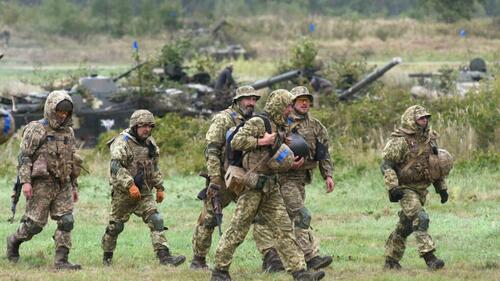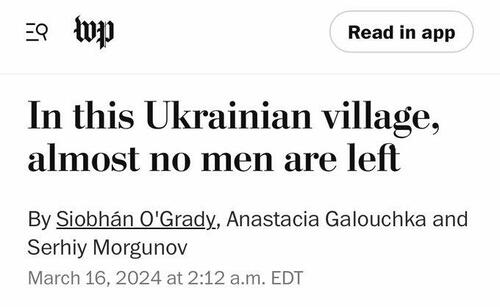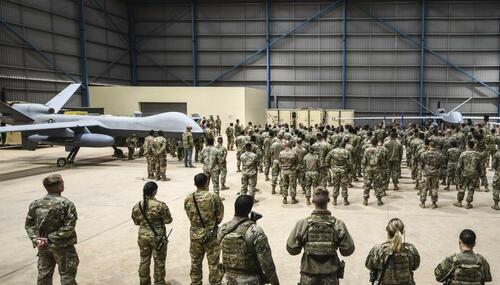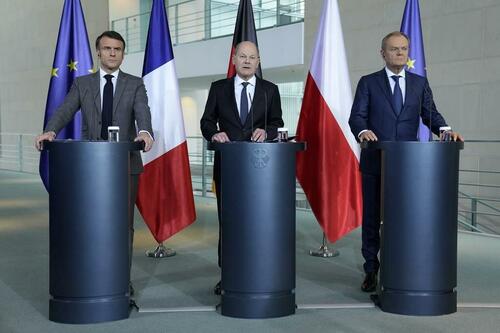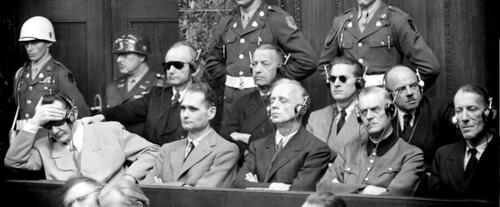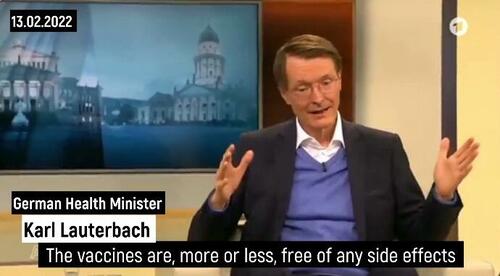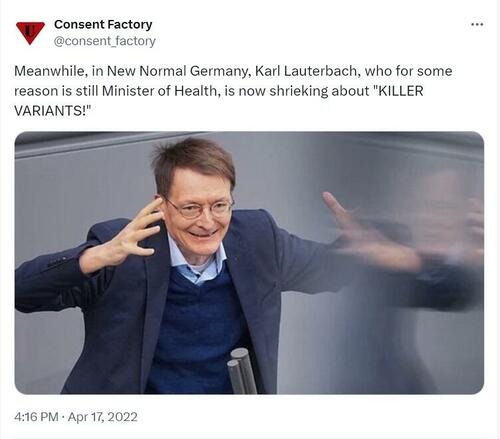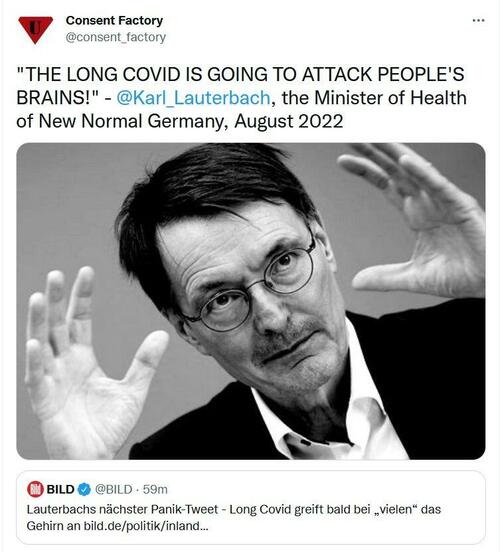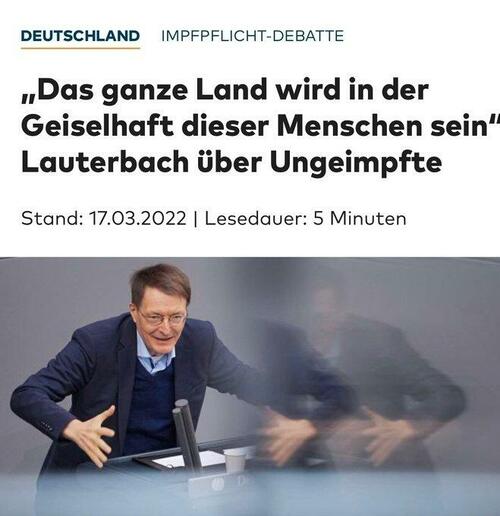We are quickly approaching a crossroad with the war in Ukraine. The problem is that the West has put all its eggs in the broken Ukraine basket but as Macron recently explained, calling it quit now would deal a fatal blow to Europe's credibility.
So what will it be: Credibility of WW3?
Via RT
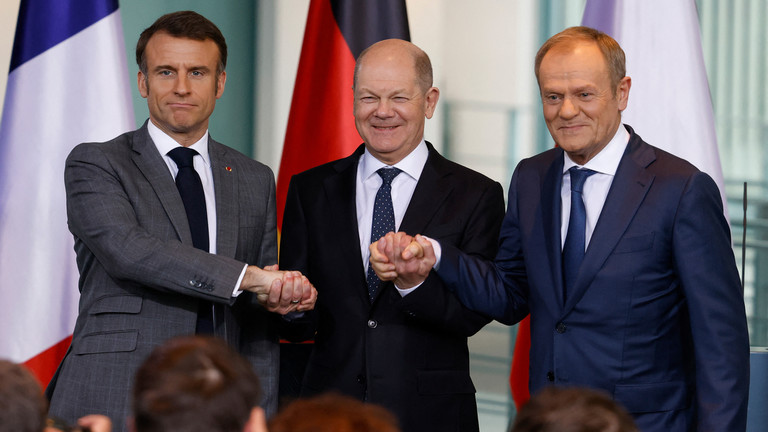
The current situation in the conflict between Ukraine – serving
(while being demolished) as a proxy for the West – and Russia, can be
sketched in three broad strokes.
First, Russia now clearly has the upper hand on the battlefield and
could potentially accelerate its recent advances to achieve an overall
military victory soon. The West is being compelled to recognize this
fact: as Foreign Affairs put it, in an article titled “Time is Running Out in Ukraine,” Kiev and its Western supporters “are
at a critical decision point and face a fundamental question: How can
further Russian advances… be stopped, and then reversed?” Just
disregard the bit of wishful thinking thrown in at the end to sweeten
the bitter pill of reality. The key point is the acknowledgment that it
is crunch time for the West and Ukraine – in a bad way.
Second, notwithstanding the above, Ukraine is not yet ready to ask
for negotiations to end the war on terms acceptable to Russia,
which would be less than easy for Kiev. (Russian President Vladimir
Putin, meanwhile, reiterated in an important recent interview that
Moscow remains principally open to talks, not on the basis of “wishful thinking” but, instead, proceeding from the realities “on the ground.”)
The Kiev regime’s inflexibility is little wonder. Since he jettisoned
a virtually complete – and favorable – peace deal in the spring of
2022, President Vladimir Zelensky has gambled everything on an always
improbable victory. For him personally, as well as his core team (at
least), there is no way to survive – politically or physically – the
catastrophic defeat they have brought on their country by leasing it out
as a pawn to the Washington neocon strategy.
The Pope, despite the phony brouhaha
he triggered in Kiev and the West, was right: a responsible Ukrainian
leadership ought to negotiate. But that’s not the leadership Ukraine
has. Not yet at least.
Third, the West’s strategy is getting harder to decipher because, in
essence, the West cannot figure out how to adjust to the failure of its
initial plans for this war. Russia has not been isolated; its military
has become stronger, not weaker – and the same is true of its economy,
including its arms industry.
And last but not least, the Russian political system’s popular
legitimacy and effective control has neither collapsed nor even frayed.
As, again, even Foreign Affairs admits, “Putin would likely win a fair election in 2024.”
That’s more than could be said for, say, Joe Biden, Rishi Sunak, Olaf
Scholz, or Emmanuel Macron (as for Zelensky, he has simply canceled the
election).
In other words, the West is facing not only Ukraine’s probable
defeat, but also its own strategic failure. The situation, while not a direct military rout (as in Afghanistan in 2021) amounts to a severe political setback.
In fact, this looming Western failure is a historic debacle in the
making. Unlike with Afghanistan, the West will not be able to simply
walk away from the mess it has made in Ukraine. This time, the
geopolitical blowback will be fierce and the costs very high. Instead of
isolating Russia, the West has isolated itself, and by losing, it will
show itself weakened.
It is one thing to have to finally, belatedly accepted that the deceptive “unipolar”
moment of the 1990s has been over for a long time. It is much worse to
gratuitously enter the new multipolar order with a stunning, avoidable
self-demotion. Yet that is what the EU/NATO-West has managed to
fabricate from its needless over-extension in Ukraine. Hubris there has
been galore, the fall now is only a matter of time – and not much time
at that.
Regarding EU-Europe in particular, on one thing French President Emmanuel Macron is half right. Russia’s victory “would reduce Europe’s credibility to zero.”
Except, of course, a mind of greater Cartesian precision would have
detected that Moscow’s victory will merely be the last stage in a longer
process.
The deeper causes of EU/NATO-Europe’s loss of global standing are
threefold. First, its own wanton decision to seek confrontation instead
of a clearly feasible compromise and cooperation with Russia (why
exactly is a neutral Ukraine impossible to live with again?) Second, the
American strategy of systematically diminishing EU/NATO-Europe with a
short-sighted policy of late-imperial client cannibalization which takes
the shape of aggressive deindustrialization and a “Europeanization” of the war in Ukraine. And third, the European clients’ grotesque acquiescence to the above.
That is the background to a recent wave of mystifying signals coming
out of Western, especially EU/NATO elites: First, we have had a wave of scare propaganda to accompany the biggest NATO maneuvers since the end of the Cold War. Next Macron publicly declared
and has kept reiterating that the open – not in covert-but-obvious
mode, as now – deployment of Western ground troops in Ukraine is an
option. He added a cheap demagogic note by calling on Europeans not to
be “cowards,” by which he means that they should be ready to
follow, in effect, his orders and fight Russia, clearly including inside
and on behalf of Ukraine. Never mind that the latter is a not an
official member of either NATO or the EU as well as a highly corrupt and
anything but democratic state.
In response, a divergence has surfaced inside EU/NATO Europe: The
German government has been most outspoken in contradicting Macron. Not only Chancellor Scholz rushed
to distance himself. A clearly outraged Boris Pistorius – Berlin’s
hapless minister of defense, recently tripped up by his own generals’
stupendously careless indiscretion over the Taurus missiles – has grumbled that there is no need for “talk about boots on the ground or having more courage or less courage.” Perhaps more surprisingly, Poland, the Czech Republic as well as NATO figurehead Jens Stoltenberg (i.e., the US) have been quick to state
that they are, in effect, not ready to support Macron’s initiative. The
French public, by the way, is not showing any enthusiasm for a
Napoleonic escalation either. A Le Figaro poll shows 68 percent against
openly sending ground troops to Ukraine.
On the other side, Macron has found some support. He is not entirely
isolated, which helps explain why he has dug in his heels: Zelensky does
not count in this respect. His bias is obvious, and his usual delusions
notwithstanding he is not calling the shots on the matter. The Baltic
states, however, while military micro-dwarfs, are, unfortunately, in a
position to exert some influence inside the EU and NATO. And true to
form, they have sided with the French president, with Estonia and Lithuania taking the lead.
It remains impossible to be certain what we are looking at. To get
the most far-fetched hypothesis out of the way first: is this a
coordinated bluff with a twist? A complicated Western attempt at playing
good-cop bad-cop against Russia, with Macron launching the threats and
others signaling that Moscow could find them less extreme, at a
diplomatic price, of course? Hardly. For one thing, that scheme would be
so hare-brained, even the current West is unlikely to try. No, the
crack opening up in Western unity is real.
Regarding Macron himself, too-clever-by-half, counter-productive
cunning is his style. We cannot know what exactly he is trying to do;
and he may not know himself. In essence, there are two possibilities.
Either the French president now is a hard-core escalationist determined
to widen the war into an open clash between Russia and NATO, or he is a
high-risk gambler who is engaged in a bluff to achieve three purposes.
Frighten Moscow into abstaining from pushing its military advantage in
Ukraine (a hopeless idea); score nationalist “grandeur” points domestically in France (which is failing already); and increase his weight inside EU/NATO-Europe by “merely” posturing as, once again, a new “Churchill” –
whom Macron himself has made sure to allude to, in all his modesty.
(And some of his fans, including Zelensky, a grizzled veteran of
Churchill live action role play, have already made that de rigueur if
stale comparison.)
While we cannot entirely unriddle the moody sphinx of the Elysée or,
for that matter, the murky dealings of EU/NATO-European elites, we can
say two things. First, whatever Macron thinks he is doing, it is
extremely dangerous. Russia would treat EU/NATO-state troops in Ukraine
as targets – and it won’t matter one wit if they turn up labeled “NATO” or under national flags “only.”
Russia has also reiterated that it considers its vital interests
affected in Ukraine and that if its leadership perceives a vital threat
to Russia, nuclear weapons are an option. The warning could not be
clearer.
Second, here is the core Western problem that is now – due to Russia
undeniably winning the war – becoming acute: Western elites are split
between “pragmatists” and “extremists.” The
pragmatists are as Russophobic and strategically misguided as the
extremists, but they do shy away from World War Three. Yet these
pragmatists, who seek to resist hard-core escalationists and reign it at
least high-risk gamblers, are brought up short against a crippling
contradiction in their own position and messaging: As of now,
they still share the same delusional narrative with the extremists. Both
groupings keep reiterating that Russia plans to attack all of
EU/NATO-Europe once it defeats Ukraine and that, therefore, stopping
Russia in Ukraine is, literally, vital (or in Macron’s somewhat Sartrean
terms “existential”) to the West.
That narrative is absurd. Reality works exactly the other way around:
The most certain way to get into a war with Russia is to send troops to
Ukraine openly. And what is existential for EU/NATO-Europe is to
finally liberate itself from American “leadership.” During the
Cold War, a case could be made that (then Western) Europe needed the US.
After the Cold War, though, that was no longer the case. In response,
Washington has implemented a consistent, multi-administration,
bipartisan, if often crude, strategy of avoiding what should have been
inevitable: the emancipation of Europe from American dominance.
Both the eastward expansion of NATO, programmed – and predicted – to
cause a massive conflict with Russia and the current proxy war in
Ukraine, obstinately provoked by Washington over decades, are part of
that strategy to – to paraphrase a famous saying about NATO – “keep Europe down.” And the European elites have played along as if there’s no tomorrow, which, for them, there really may not be.
We are at a potential breaking-point, a crisis of that long-term
trajectory. If the pragmatists in EU/NATO-Europe really want to contain
the extremists, who play with triggering an open war between Russia and
NATO that would devastate at least Europe, then they must now come clean
and, finally, abandon the common, ideological, and entirely unrealistic
narrative about an existential threat from Moscow.
As long as the pragmatists dare not challenge the escalationists on
how to principally understand the causes of the current catastrophe, the
extremists will always have the advantage of consistency: Their
policies are foolish, wastefully unnecessary, and extremely risky. And yet, they follow from what the West has made
itself believe. It is high time to break that spell of self-hypnosis,
and face facts.

